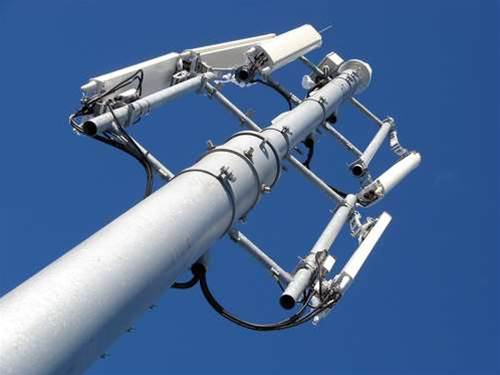U.S. telecommunications regulators proposed on Tuesday freeing up more airwaves for wireless services to meet the expanding use of handheld devices.

The Federal Communications Commission voted unanimously to seek public comment on the proposals that include the use of some broadcast television airwaves for wireless devices.
"The explosive growth of mobile communications threatens to outpace the infrastructure on which it relies," FCC Chairman Julius Genachowski told Tuesday's meeting.
The FCC also proposed loosening experimental licensing rules to give universities and research institutions more flexibility to develop new wireless devices, and sought comment on accelerating the use of undeveloped airwaves through secondary markets and other means.
Later on Tuesday the FCC was expected to disclose whether it plans to act on contentious Internet traffic rules this year, with the expected release of its agenda for its Dec. 21 meeting.
At stake is how quickly consumers, particularly those using handheld devices, like Research in Motion's BlackBerry and Apple's iPhone, can receive and download videos and other data-hogging content.
Net neutrality rules would determine whether high-speed Internet providers like Comcast and Verizon should be allowed to block or slow some traffic, or charge for a "fast lane" to reach users more quickly.
Broadband providers say they should be able to manage their networks but some public interest groups and content providers argue that there should be a level playing field for all Internet users.
Comcast came under attack on Monday for what Level 3 Communications, a key network partner of Netflix, called a violation of open Internet principles.
Level 3 accused Comcast of charging it unfair fees to deliver content to Comcast subscribers, while Comcast countered that the fees were in line with the increase in traffic that Level 3 will send over Comcast's network.
The tension between content providers and those who provide Internet service is particularly acute in wireless applications.
The Obama administration has endorsed making 500 megahertz of spectrum available for mobile broadband use.
"If we don't act to update our spectrum policies for the 21st century, we're going to run into a wall -- a spectrum crunch that will stifle American innovation and economic growth," Genachowski said on Tuesday.
The FCC's proposed rule changes would help its plan to repurpose 120 megahertz of spectrum from television stations for mobile broadband use.
"Our goal is to be ready to move quickly in the event that Congress authorises incentive auctions," Genachowski said.


_(20).jpg&h=140&w=231&c=1&s=0)


_(23).jpg&h=140&w=231&c=1&s=0)





 iTnews Executive Retreat - Security Leaders Edition
iTnews Executive Retreat - Security Leaders Edition
 iTnews Benchmark Awards 2026
iTnews Benchmark Awards 2026
 iTnews Cloud Covered Breakfast Summit
iTnews Cloud Covered Breakfast Summit
 The 2026 iAwards
The 2026 iAwards












_(1).jpg&h=140&w=231&c=1&s=0)



